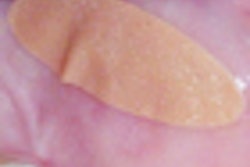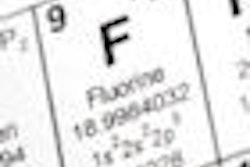Anticaries DNA vaccines such as pGJA-P/VAX are showing promise in their ability to prevent dental caries, according to a new study in the Journal of Dental Research (October 25, 2011).
Researchers from the Wuhan Institute of Virology at the Chinese Academy of Sciences used recombinant flagellin protein derived from Salmonella as a mucosal adjuvant for pGJA-P/VAX. They analyzed the effects of the Salmonella protein on the serum surface protein immunoglobulin G and saliva surface protein immunoglobulin A antibody responses, the colonization of Streptococcus mutans on rodent teeth, and the formation of caries lesions.
The researchers found that Salmonella promoted the production of surface protein immunoglobulin G in serum and secretory immunoglobulin A in saliva of animals by intranasal immunization with pGJA-P/VAX plus Salmonella.
Furthermore, enhanced surface protein immunoglobulin A responses in saliva were associated with inhibition of S. mutans colonization of tooth surfaces and endowed better protection with significant less carious lesions.
These findings demonstrate that recombinant Salmonella can enhance specific immunoglobulin A responses in saliva and also the protective ability of pGJA-P/VAX, providing an effective mucosal adjuvant candidate for intranasal immunization of an anticaries DNA vaccine, the researchers concluded.
However, low immunogenicity of DNA vaccines is a primary challenge to their success, they acknowledged.
In response to the report, also published in the Journal of Dental Research, Daniel Smith at the Forsyth Institute noted that DNA vaccine approaches for dental caries have had a history of success in animal models. Vaccines directed to key components of S. mutans colonization and enhanced by safe and effective adjuvants and optimal delivery vehicles, are likely to be forthcoming, he added.



















